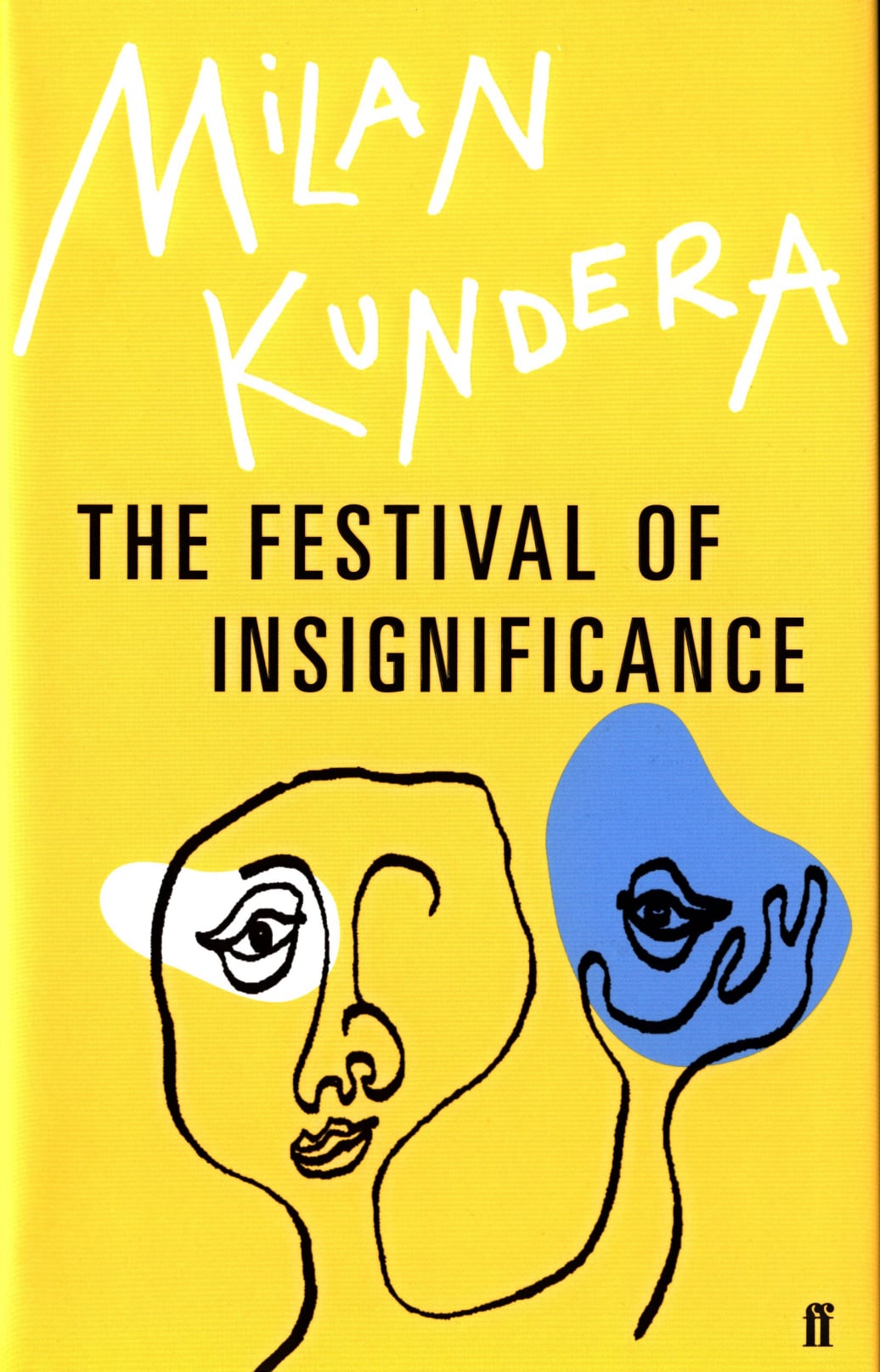
Casting light on the most serious of problems and at the same time saying not one serious sentence; being fascinated by the reality of the contemporary world and at the same time completely avoiding realism - that's The Festival of Insignificance.
From the cover of the Faber & faber edition, 2016
In Kundera’s earlier novel, Slowness, Vera, the author’s wife, says to her husband: ‘you’ve often told me you meant to write a book one day that would have not a single serious word in it . . . I warn you: watch out. Your enemies are lying in wait.’ Far from watching out, Kundera finally and fully realises his old aesthetic dream in a novel that we could view as a summation of his whole work. A strange sort of summation. Strange sort of epilogue. Strange sort of laughter, inspired by our era, which is comical because it has lost all sense of humor. What more can we say of Kundera’s last novel? Nothing. Just read.
Faber & Faber, online
I like everything you've said to me so far, I like everything you're inventing, and I have nothing to add. Except, maybe, about the navel. To your mind, the model of a navel-less woman is an angel. For me, it's Eve, the first woman. She was not born out of a belly but out of a whim, the Creator's whim. It's from her vulva, the vulva of a navel-less woman, that the first umbilical cord emerged. If I'm to believe the Bible, other cords too: with a little man or a little woman attached to each cord. Men's bodies were left with no continuation, completely useless, whereas from out of the sexual organ of every woman there came another cord, with another woman or man at the end of each one, and all of that, millions and millions of times over, turned into an enormous tree, a tree formed from the infinity of bodies, a tree whose branches reached to the sky.
Faber & faber, 2016, p. 80
It would be a triumph of the loss of illusions over all deception and disappointments. And this victory is Kundera’s goal. But it comes at a price. For in all the wit that this unique book exudes there is a great sadness, a sadness that this terrible century (the 20th) has left no ideal behind except technology.
Among the characters of this book in a more or less good mood, speech dominates again. The attempt to protect it - that is how the author Milan Kundera can be understood - is what still pays off today, even if in doing so it can erupt in often suppressed laughter, which is usually itself also ridiculous. Thanks to its sparse structure, this book is an invitation to an even closer interweaving of the essential and the insignificant, the substantial and the anecdotal, and at the same time the impossibility of binding them together completely. And the translator's detail-oriented language, with its hints of aloofness, is a perfect fit for Kundera's generously rendered novel.
Existentialism in it’s Kunderian manifestation like it’s cousin the absurd and surreal, claims laughter to be an essential element of man’s defiance. One of the strategies of occupied Czechoslovakia was in fact laughter. People watched irreverent movies about tyrants and allowed their derision to ring throught open windows. Where the soviets could hearthem. It may be that when Kundera writes about laughter, he conceives of it not as a subjective expression of appreciation or surprise, the way we usually understand it, but as a materialform of aggresion, an actual act of self-defense, even a duty. There is a timeless quality to his philosophy about the importance of laughter, but also a sense that the world has run beyond some of the concerns that still preoccupy him. Even as he tells us to remember that nothing will matter in the long run, we sense that for him bygone political events are still immediate, or at least they are for his characters.“Ithink our jokes have lost their power,“ remarks Ramon , who has a sense of their historical past. Maybe the real joke here is that, sadly, altought Kundera is still the powerful and incisive writer he always was, what he has to tell us seems to have less relevance. You can’t help wondering what his evolution would have been like if he had stayed, or stayed longer, in Czechoslovakia.



The Milan Kundera Library is funded by the South Moravian Region and the City of Brno.
© 2024 Moravian Library in Brno